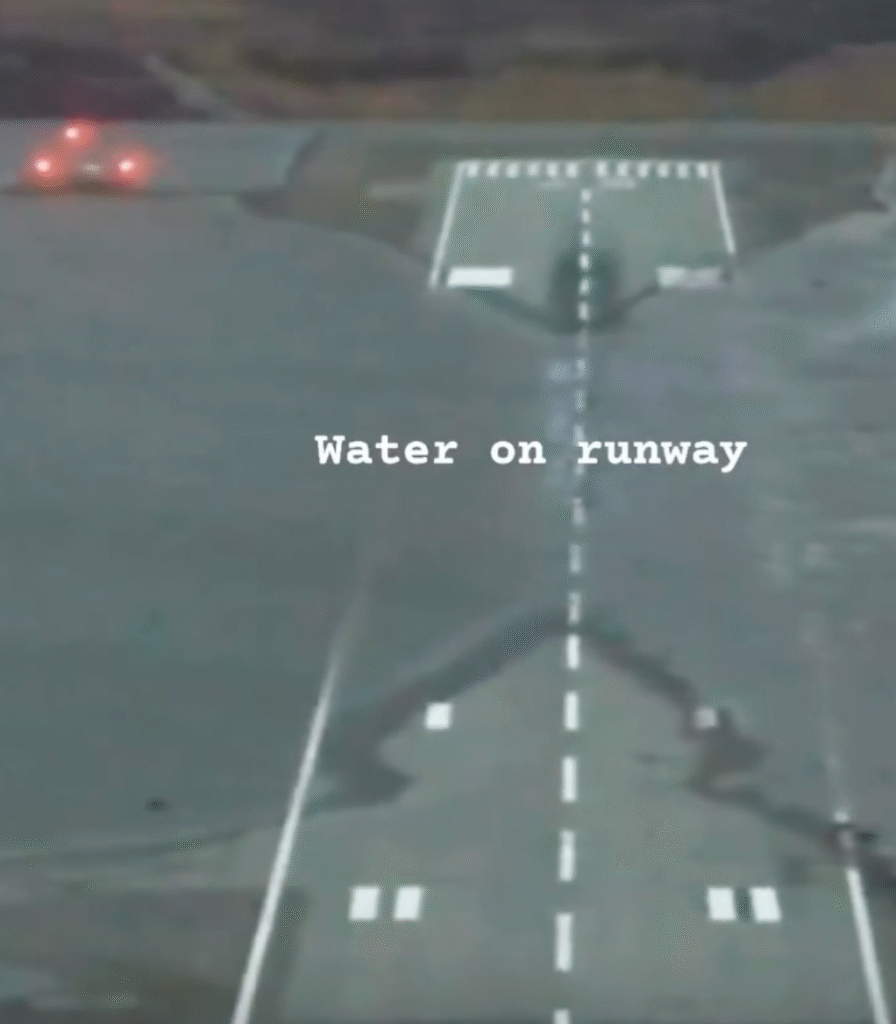While serving as Vice President, Dick Cheney had the wireless function of his heart defibrillator turned off due to the fear that a terrorist could remotely send a fatal shock to his heart.
1) Dick Cheney, 46th U.S. Vice President, dies at 84
Richard B. “Dick” Cheney, a central, often polarizing figure in U.S. national security and modern Republican politics, has died at age 84. Cheney’s career spanned the Nixon White House, service as secretary of defense under George H. W. Bush, a long House career, a stint as Halliburton CEO, and the vice presidency under George W. Bush where he was widely credited (and criticized) for shaping post-9/11 policy, including the Iraq War and expanded executive authorities. The family statement says he passed surrounded by loved ones; outlets report complications from pneumonia and long-standing heart and vascular disease. Reaction is pouring in from across the political spectrum as commentators assess his lasting influence on U.S. defense and intelligence policy. AP News+1
2) Day 35: U.S. federal government shutdown ties the record

The federal government has entered its 35th day of shutdown, matching the longest shutdown on record. Lawmakers in Congress remain deadlocked over the funding package, while the White House and GOP and Democratic leaders trade blame. The Senate is preparing another procedural vote, and federal agencies are operating with reduced staff; ripple effects are visible in airport congestion, delayed processing of some services, and strain on safety-net programs, though officials say limited contingency funds will cover certain benefits like partial SNAP payments. Political pressure is rising: analysts warn the prolonged impasse is shifting public opinion and could alter campaign dynamics next year. United States House of Representatives
3) Powerful 6.3 magnitude earthquake devastates northern Afghanistan (Mazar-e-Sharif area)

A magnitude-6.3 quake struck near Mazar-e-Sharif early Monday, killing dozens and injuring hundreds as it demolished mud-brick homes and heritage sites including parts of the Blue Mosque. Local rescue teams, military units and international agencies scrambled to assist amid reports of hundreds of people trapped, overwhelmed health centers, and winter-cold exposure risk for displaced families. The catastrophe compounds Afghanistan’s recent disaster history and underscores urgent humanitarian needs as access and funding remain politically and logistically fraught. U.S. Department of Defense Historical Office biography.
4) Hurricane Melissa aftermath: Jamaica and the Caribbean begin recovery from a catastrophic storm

Hurricane Melissa, a catastrophic Category-5 storm at peak intensity, left large parts of Jamaica and stretches of the Caribbean in ruin after late-October landfalls. Death toll and damage estimates rose through the weekend; utilities and transportation remain disrupted, and international agencies have launched relief flights and aid convoys. Officials are tallying infrastructure losses and assessing needs as recovery and rebuilding plans start to crystallize, including urgent shelter, power restoration, and long-term resilience funding discussions. Office of the Prime Minister
5) Israel rocked by scandal – top military lawyer arrested after leaking video of alleged prisoner abuse

Oren Ben Hakoon/AP
Israel’s military legal system faced a dramatic unraveling after the former military advocate general admitted leaking a video that purportedly shows the abuse of a Palestinian detainee. The admission, subsequent disappearance and now arrest have inflamed tensions inside Israel: right-wing groups decry the legal probe while others warn the episode undercuts military discipline and rule of law. The case has prompted protests and heated public debate over investigations of soldiers and accountability during wartime operations. AP News+1
6) Mass stabbing on Cambridge-bound train injures 11; suspect charged

A man has been charged with multiple counts of attempted murder after a stabbing aboard a London North Eastern Railway service left 11 people injured. Police said the attack was not being treated as terrorism; dramatic CCTV and passenger testimony highlighted a rapid, chaotic response by other passengers and rail staff who helped subdue and detain the suspect. The incident is prompting renewed focus on rail-security protocols and victim support. btp.police.uk
7) Netherlands: Centrist D66 emerges ahead in tight general election – coalition talks loom

Dutch voters delivered a razor-thin lead to the centrist D66 party in a fraught, closely contested election that leaves coalition negotiations inevitable. The result, narrowly ahead of Geert Wilders’ PVV, puts D66 in the driver’s seat to begin talks on forming a governing coalition, but a fragmented legislature means any new government will need careful negotiation and compromise. Observers expect protracted haggling as parties weigh migration, security, and economic policies. AP News
8) Kipnuk Airport Reopens After Typhoon Halong – A Lifeline Restored for Western Alaska
After weeks of storm-battered isolation, the Kipnuk Airport officially reopened this week, restoring the critical air link that residents of the remote coastal community rely on for food, fuel, medical flights, mail, and nearly every essential supply.
The airfield, one of the region’s most important transportation hubs, sustained significant damage when Typhoon Halong roared into Western Alaska earlier this fall. The storm’s combination of hurricane-force winds and coastal flooding ripped apart runway surfaces, scattered debris across the airfield, and forced flight cancellations that cut off the village just as freezing temperatures set in.

For nearly a month, Kipnuk had no regular air service. Cargo shipments halted. Mail backlogs stretched into the hundreds of pounds. Residents with medical appointments were forced to wait or rely on costly charter flights when weather allowed. Elders told local officials they were worried they would run out of heating fuel before the barge and air shipments could resume.
Those pressures finally eased this week as crews finished stabilizing the runway and repairing navigation equipment. The first small cargo plane touched down Monday morning, greeted by residents who thanked the pilots and immediately rolled handcarts out to unload long-delayed supplies.
State transportation officials said the reopening marks a major milestone in the region’s storm recovery. The airport, they noted, is not merely a transit point—it is the community’s economic and logistical lifeline.
“Getting Kipnuk’s runway operational again was our top priority,” one DOT spokesperson said. “For villages without road access, restoring air service isn’t just important. It’s survival.”
Local leaders agree. They say the storm exposed just how vulnerable remote Alaska remains to climate-driven extreme weather, and how fragile essential infrastructure can be when it sits at the mercy of tidewater, erosion, and aging construction.
With planes flying again, the next challenge is catching up: weeks of delayed medicine, groceries, mail, and mechanical parts are slowly trickling in. Emergency planners are also using the airport reopening to reassess long-term resilience needs, from runway reinforcement to improved drainage and erosion control.
But for now, residents say they’re relieved. After a storm that cut off everything from diapers to dialysis supplies, the roar of an approaching airplane is once again the sound of normal life returning.
Alaska continues to grapple with recovery after Typhoon Halong battered remote communities on the state’s west coast. Officials say the storm exposed persistent emergency-response weaknesses, from damaged airstrips to hampered supply lines, and emphasized the high cost and complexity of rescue and rebuilding in the Arctic and sub-Arctic. The episode is driving conversations in Juneau and Washington about infrastructure spending priorities and disaster preparedness for climate-amplified extreme weather. Governing
9) More than 10 have filed intent to run for Governor of Alaska in 2026

Alaska’s 2026 governor’s race is already taking shape more than a year ahead of the election, with more than ten individuals filing letters of intent with the Alaska Division of Elections to seek the state’s top job. The early filings reflect a wide-open contest: Governor Mike Dunleavy, who has served two terms, is constitutionally barred from running again, clearing the field for a crowded and potentially unpredictable race.
The Division of Elections’ public filings show a mix of declared and exploratory candidates spanning multiple political affiliations, including Republicans, Democrats, independents, and nonpartisan contenders. While formal candidacy declarations are not required until the official filing window opens next year, the early letters signal fundraising activity, alliance-building, and behind-the-scenes groundwork already underway.
With key issues such as Permanent Fund dividends, energy development, education funding, and rural infrastructure likely to dominate the cycle, political observers expect the wide field to narrow as party organizations, regional power blocs, and influential donors begin to weigh in.
For now, the only certainty is that the 2026 governor’s race, shaped by an open seat and a diverse slate of early entrants, will be one of Alaska’s most competitive in years. elections.alaska.gov
10) UN warns Sudan’s war is “spiraling out of control” as Darfur city falls and humanitarian crisis deepens
The U.N. secretary-general issued a blunt warning after paramilitary forces seized el-Fasher in Darfur, accusing the combatants of mass atrocities and noting mounting famine, displacement and attacks on aid workers. The conflict between RSF forces and Sudan’s army has produced tens of thousands of deaths and displaced millions; Guterres called for an immediate ceasefire and unfettered humanitarian access as international alarm grows. Joint statement by UNICEF and UNHCR: “UN agencies warn of spiralling Sudan crisis as civilians face grave risks and famine threat grows amid access barriers.” UNICEF/Office of the UN High Commissioner for Human Rights (OHCHR)






